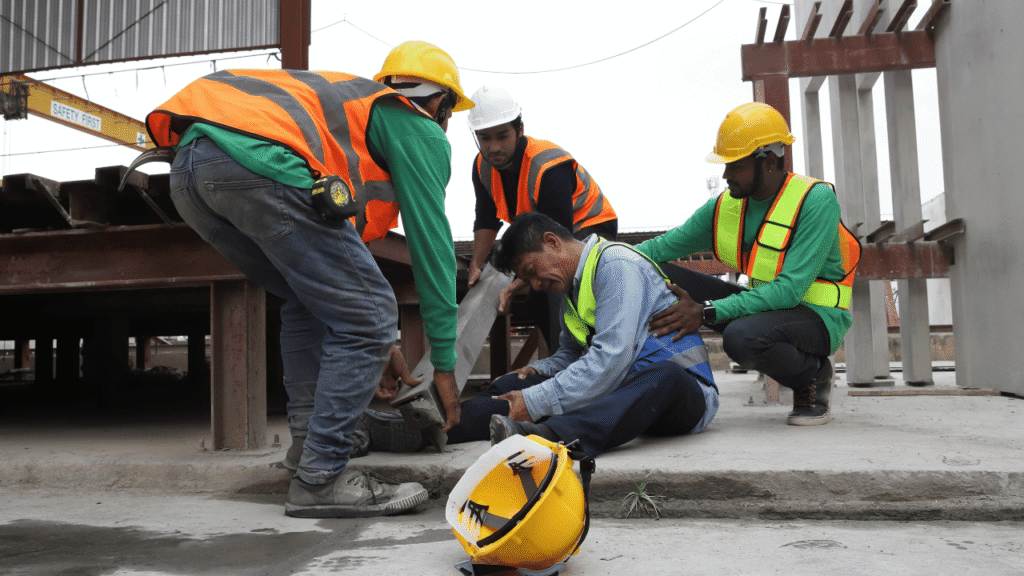Restaurants, bars, hotels, and catering events might look glamorous from the outside, but behind the scenes, the work is intense, physical, and often dangerous. From hot kitchens to slippery floors, employees in the hospitality industry face daily risks that can lead to painful injuries and lost income. When those injuries happen, knowing your rights and getting legal support can make all the difference. That’s why many injured workers turn to experienced legal teams at https://www.workerscompensationlawyercalifornia.com to get the representation they need. This isn’t just about healing – it’s about making sure you’re treated fairly.
The Most Common Injuries in Hospitality Jobs
While every workplace has its hazards, the restaurant and hospitality industries come with a unique mix of fast movement, high heat, sharp tools, and heavy lifting.
1. Burns and Scalds
Whether you’re a line cook, server, or dishwasher, burns are among the most frequent injuries. Hot oil splatters, steam blasts from espresso machines, and careless pot handling can leave lasting scars.
Fun fact: Commercial fryers reach temperatures of 350°F or more, enough to cause third-degree burns in seconds.
2. Slips, Trips, and Falls
Between greasy floors in the kitchen, wet tiles in restrooms, and cluttered prep areas, it’s no surprise that falls are a leading cause of injury. A fall can mean anything from a twisted ankle to a fractured wrist or head injury.
3. Cuts and Lacerations
From slicing vegetables to opening boxes, sharp objects are everywhere. A fast-paced environment makes accidents more likely, especially when workers are under pressure to move quickly.
4. Overexertion and Strains
Hotel housekeepers lifting mattresses, banquet servers carrying heavy trays, and bartenders working long shifts all run the risk of muscle strains and back injuries. These are often the result of repetitive motion or poor ergonomics.
5. Exposure to Harmful Substances
Cleaning chemicals, pest control agents, and other substances used behind the scenes can cause skin irritation, respiratory problems, and even long-term health issues if safety guidelines aren’t followed.
Why Workers’ Comp Claims Are Often Overlooked
Hospitality workers are known for being tough and hard-working. Many push through injuries to avoid disappointing their team or risking their job. Others fear retaliation or believe that minor injuries aren’t worth reporting.
But here’s the thing: even a “small” injury can have lasting consequences if ignored.
Workers’ compensation exists for a reason. It covers medical treatment, lost wages, and even long-term disability in some cases. You don’t have to suffer in silence.
How a Workers’ Comp Lawyer Can Help You
Filing a claim isn’t always straightforward. Employers and insurers sometimes deny valid claims or argue that an injury wasn’t work-related. This is where a skilled workers’ compensation attorney steps in to level the playing field. You can even check the office location directly on the map to see if it’s convenient for a consultation:
Here’s how they can help:
- Gather medical documentation that clearly connects your injury to your job
- Handle communication with insurance companies to avoid traps or misstatements
- Represent you at hearings if your claim is challenged or delayed
The goal is simple: make sure you get the care and compensation you need to recover without financial stress.
Your Rights as an Injured Hospitality Worker
Even if you’re a part-time worker, undocumented, or a tipped employee, you may still be eligible for benefits. The law protects you, and a knowledgeable attorney will make sure your rights are fully honored.
Interesting detail: In many states, workers’ comp is a “no-fault” system. That means you don’t have to prove that your employer did anything wrong, you just have to show that your injury happened on the job.
Don’t Wait Until It’s Too Late
There are strict deadlines for filing a workers’ compensation claim. Waiting too long can result in a denied claim, leaving you with medical bills and no income. The moment you’re injured, report it, seek treatment, and speak to a qualified workers’ comp lawyer who understands the unique challenges of hospitality work.
You give your all on the job – make sure you get what you deserve if something goes wrong. The right legal support can turn a stressful situation into a manageable recovery, with your rights protected every step of the way.




